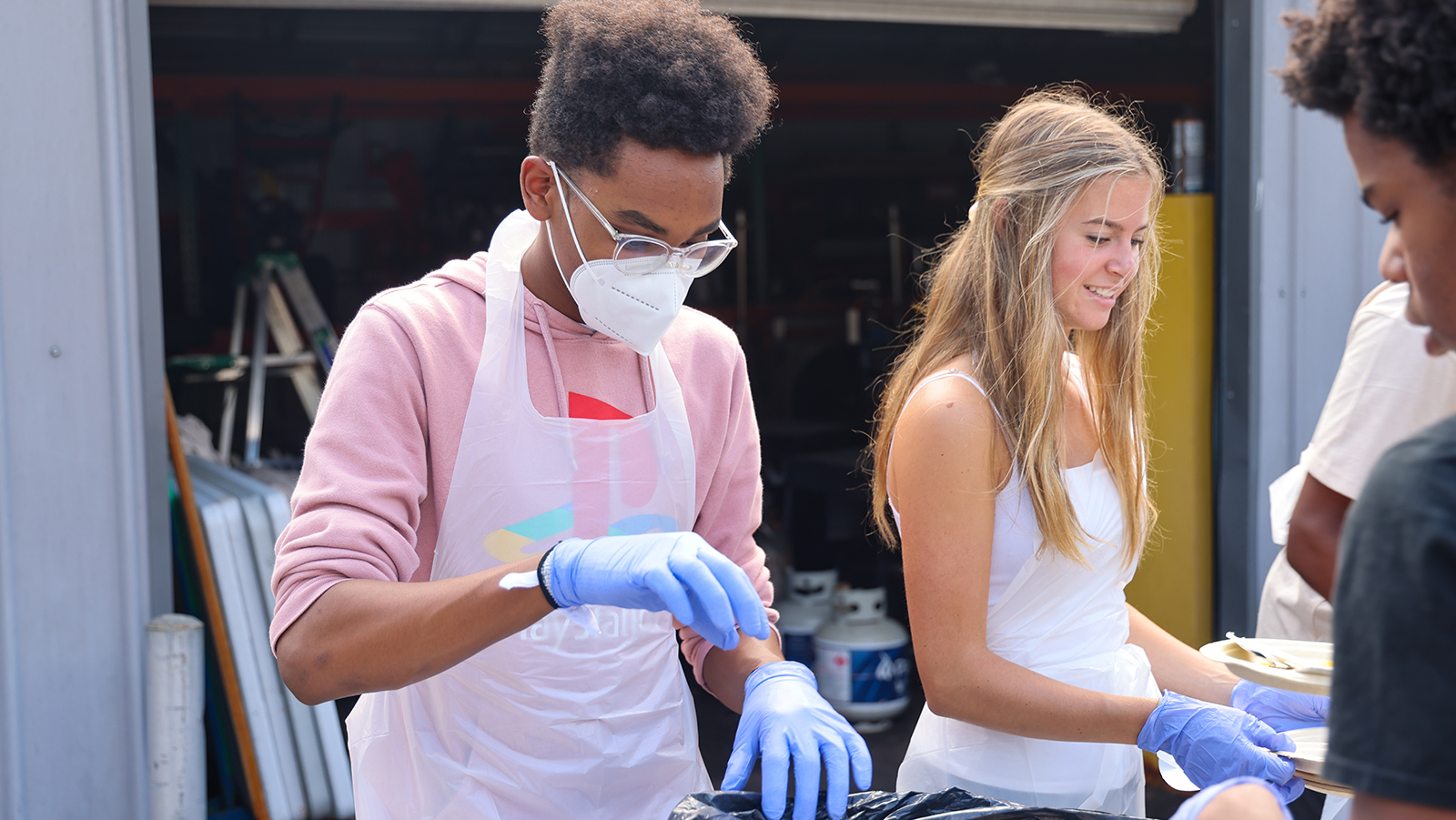
As the world grapples with environmental challenges, Riverdale Country School recognizes the significance of reducing our environmental impact and has undertaken several initiatives to promote sustainability on our Hill campus. These efforts are aligned with New York City’s OneNYC2050 plan to focus on reducing waste-to-landfill, streamlining waste streams, and reducing greenhouse gas emissions.
Last fall, Riverdale’s Hill campus held a one-day waste audit with Think Zero, which confirmed that organic waste was our biggest contributor to waste-to-landfill. An important step to divert this waste is to implement a comprehensive composting program planned for the near future. The Upper School Sustainability Club recently built a compost tumbler, which engages our community through “Cookies for Compost” events.
Also, the Hill campus food service team has discontinued the use of single-use utensils, plates, and cups and has transitioned to reusable cups. The next steps include improving our classroom system of garbage and recycling bins, which the audit showed were contaminated with too many different types of materials.
Art teacher Angela Costanzo, Riverdale’s Coordinator of Hill Campus Sustainability, says, “We plan to conduct waste audits twice a year to maintain a collection of data that can help us rethink our consumption patterns. Our future initiatives will focus on reducing our reliance on plastic and reaching our goals of zero waste over time. And we plan to implement a comprehensive composting program, both large-scale and educational. Our garden will close the loop – from growing food to cooking and eating to composting scraps to the finished compost providing nutrients to our soil. We also plan to expand our solar project, which is student led, and reduce the use of single-use materials.” The Hill sustainability program involves various individuals and groups, each playing important roles, including the facilities team; Jeff Duncan, Co-Director of Food Services; the Middle School Garden Team; the Upper School Sustainability Club; and several dedicated teachers. Students have the opportunity to invest their time and energy in engaging in what they care about, including participating in the Students for Electric School Buses Club, participating in experiential education opportunities at local farms and community gardens, and even engaging in public speaking opportunities. The Hill Campus community is committed to promoting sustainability, and our school operations will continue to lead by example by moving toward clean energy goals, cutting emissions, and pursuing zero waste strategies.




